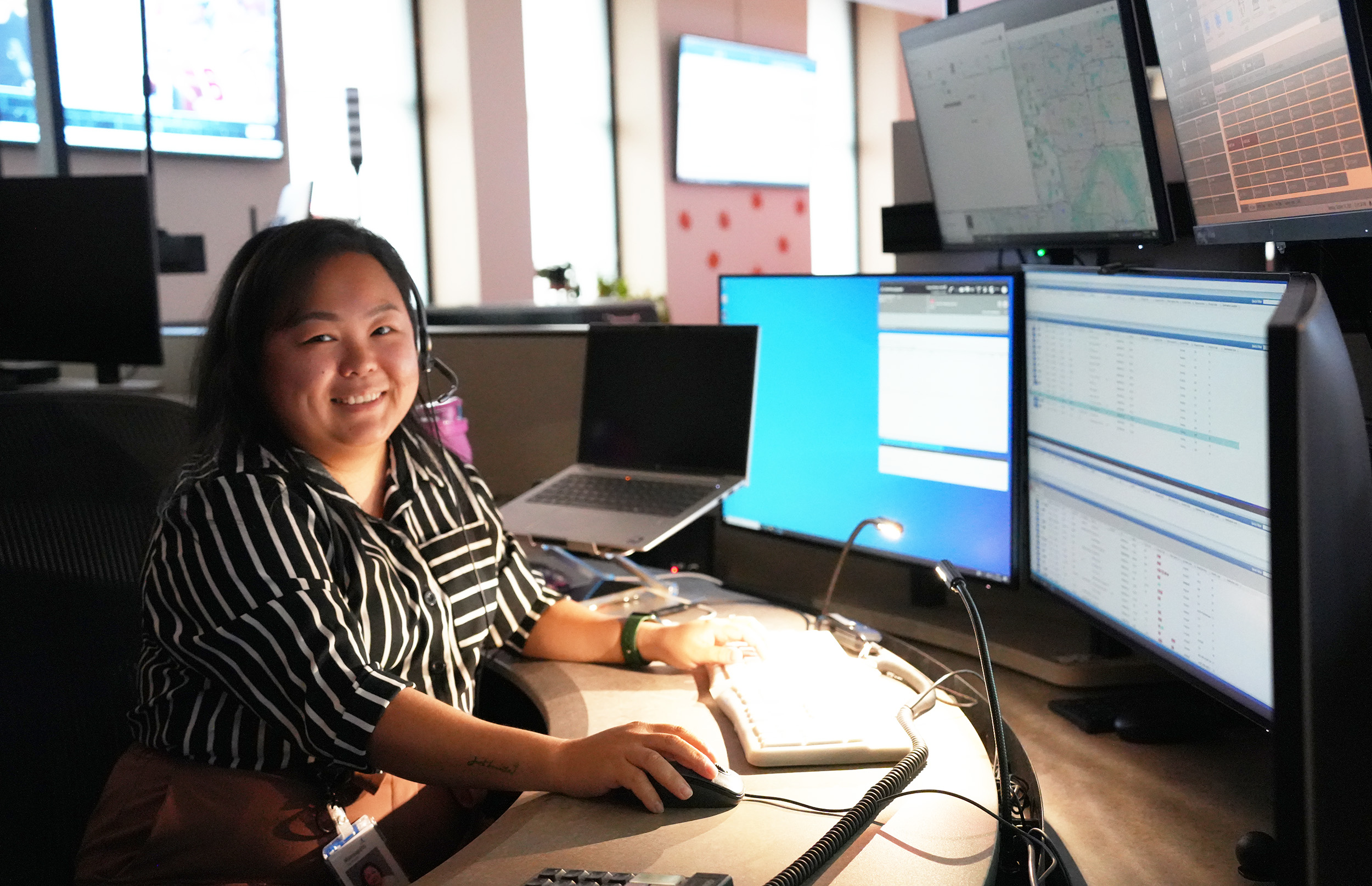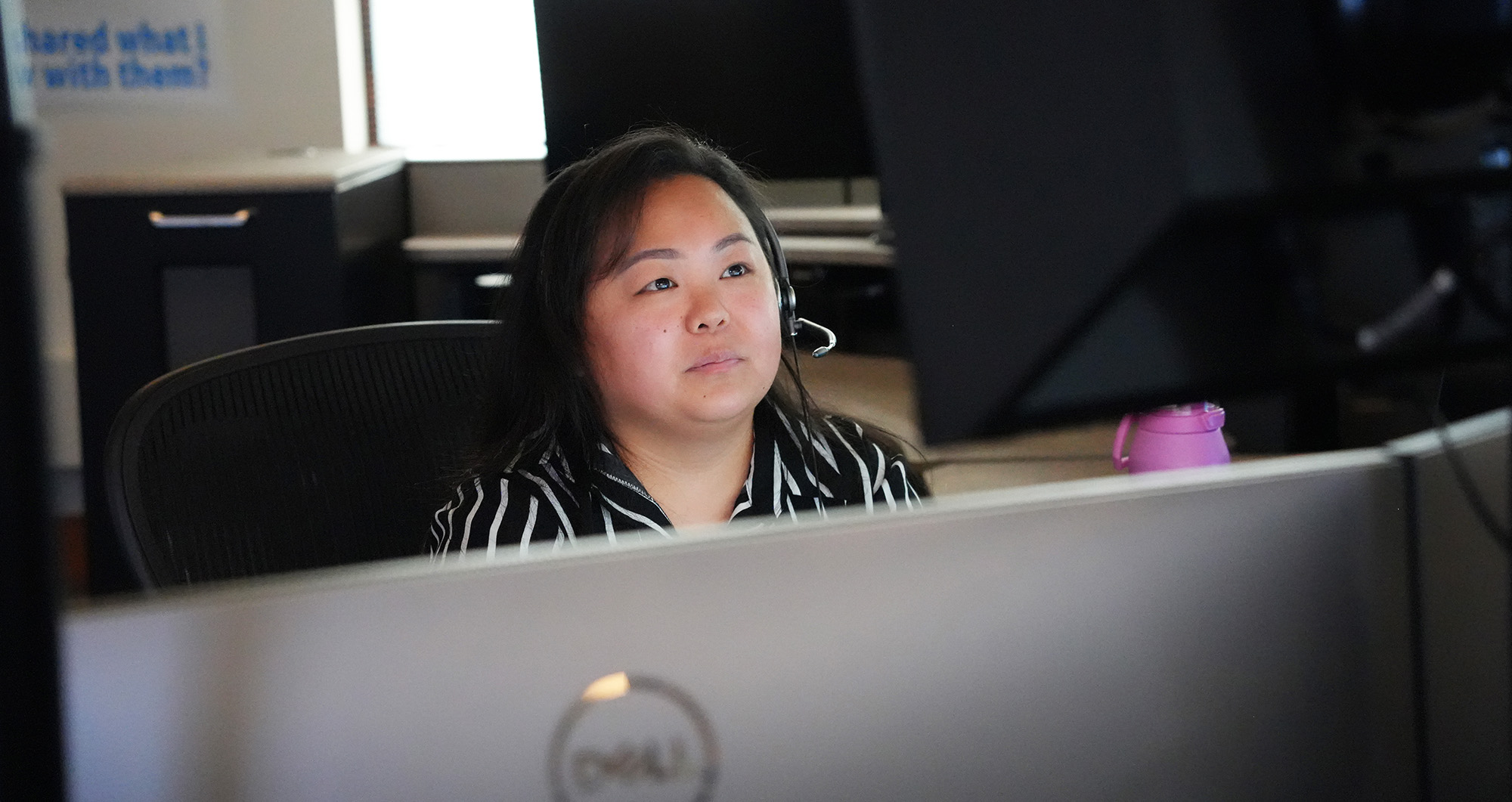Inside the Minneapolis Emergency Communications Center, Melanie Yang is ready to listen. It might be someone in crisis or someone who doesn’t know where to turn. As the center’s first embedded social worker, Melanie knows that being on the other end of the line can make an impact on someone’s life.
“When this opening was presented to me earlier this year, I knew it was my dream job,” said Yang.
As a native of Minneapolis, Melanie is committed to supporting her community. She has worked with underserved communities since 2009.
“I’ve always wanted to help people and now I can help listen and help problem solve for our community, navigating issues and determining resources in real-time.”

The right support at the right time
The City is taking a modern approach to responding to emergency calls. Instead of automatically sending a traditional responder, we’re providing additional alternative services to help someone in crisis.
The goal is to better provide community members with immediate, compassionate support for those experiencing a mental health crisis, substance use challenges, or other non-emergency situations when they call 911.
Answering the call
When a 911 call is received at the center, a public safety telecommunicator determines whether a social worker can provide support to the caller. If so, Melanie will talk with the caller and discuss their needs to identify the most appropriate resource. It could be over-the-phone crisis intervention, counseling, or connecting a person to essential services such as mental health care, addiction treatment, and housing support.
Melanie’s presence in the dispatch center will offer several key advantages:
- Timely and appropriate support
- Resource optimization
- Long-term solutions
- Community trust
A partner in community safety
The pilot program is a partnership with Hennepin County, with Melanie embedded at the Minneapolis Emergency Communications Center, where dispatchers handle emergency calls.
This partnership goes beyond law enforcement to address the root causes of violence, aligning with recommendations from the Safe and Thriving Communities Report and Plan.
“Melanie’s role is crucial for us – it will take a lot of pressure off of our public safety telecommunicators,” said MECC Director Joni Hodne. “Just knowing that someone with her skills can be there to answer questions and provide advice that we may not have, or may not have time to give, will help us do our job and be a benefit to our community.”
This collaboration between the City of Minneapolis and Hennepin County also reflects a shared commitment to ensuring our residents and community members receive the right responses at the right time, without always relying on police intervention.
“Across Hennepin County, we’re advancing this ‘fourth response’ – a specialized mental health response, in addition to police, fire, and emergency medical services,” said Leah Kaiser, director of Hennepin County Behavioral Health. “Diversifying available emergency responses means residents can easily access the right help for mental health crises.”
Looking ahead
The city will regularly evaluate the pilot program’s impact on both the individuals served and our broader community. Success stories and data will guide our next steps with the program.
Effective community safety requires more than just law enforcement, firefighters, or EMS —it must involve a compassionate, community-focused response to meet the diverse needs of all residents and community members. We are stronger when we work together, and this partnership exemplifies how we can help people during their time of need. Learn more about this pilot program.


